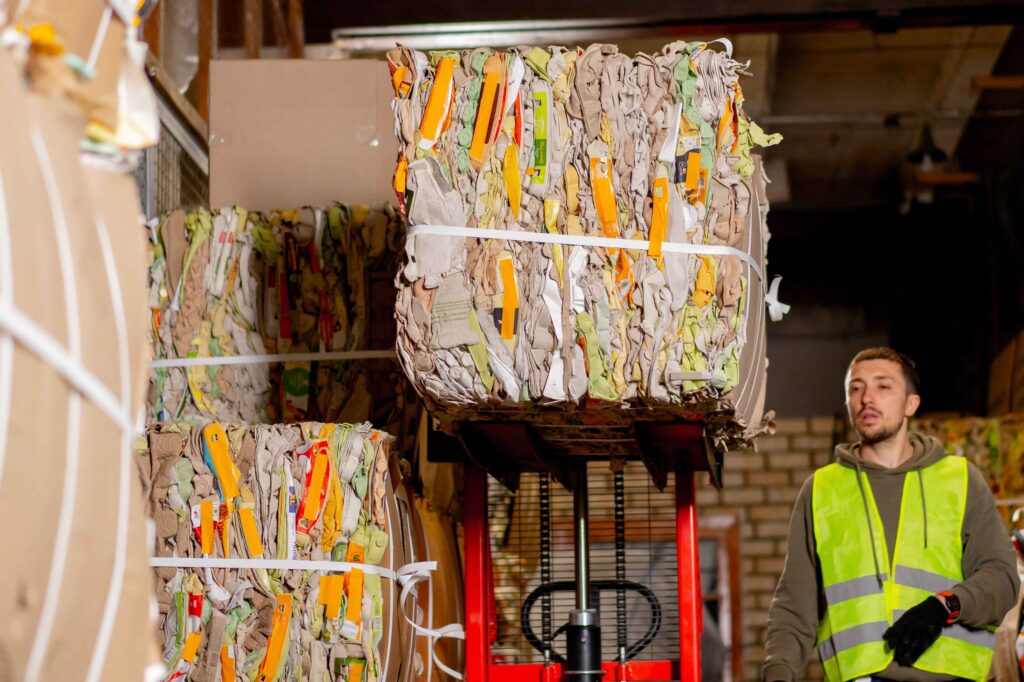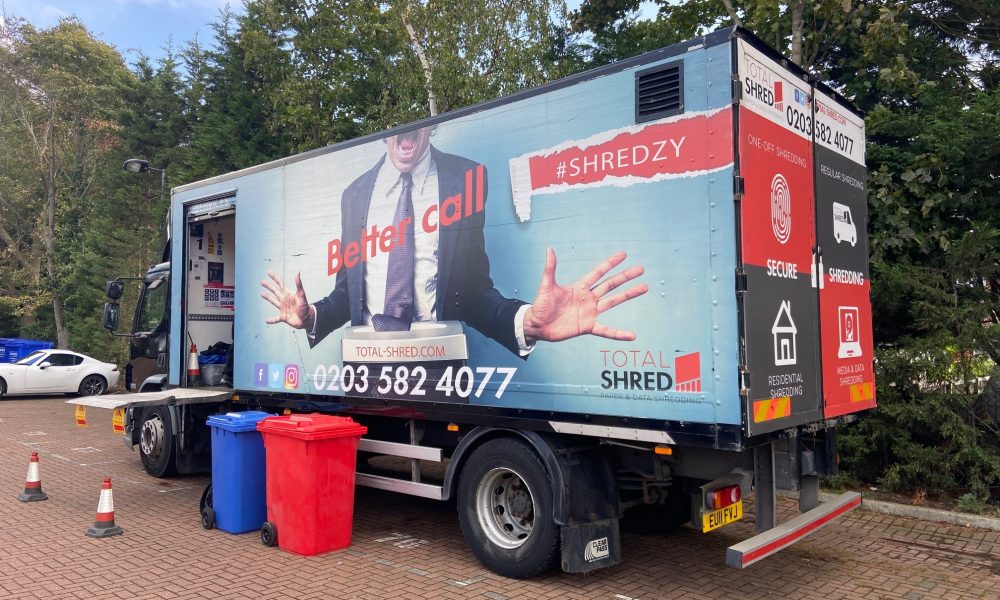In 2025, secure document shredding is not just a good business practice—it’s a legal and ethical necessity. With stricter data protection laws, increasing cyber threats, and the rising importance of safeguarding sensitive information, both companies and individuals must take document disposal seriously. Whether it’s a bank statement, medical file, HR record, or a digital storage device, improper disposal can lead to serious consequences like data breaches, identity theft, or heavy GDPR penalties.
Secure document shredding services in uk plays a key role in protecting confidential information and ensuring compliance with legal obligations. Shredding is not just about destroying paper; it’s about maintaining control over who accesses your data, even after it’s no longer in active use. In this detailed guide, we’ll cover why secure shredding matters more than ever, which types of documents require it, what digital documents need attention, how long to keep records before shredding, and how Total Shred guarantees data security in the UK.
Why Secure Document Shredding Is Essential in 2025
With rising threats of data misuse and stronger data protection regulations, secure document shredding has become a cornerstone of responsible data management in 2025. Organizations are no longer judged solely on the services they provide, but also on how they handle the data entrusted to them. Failure to dispose of sensitive documents properly can lead to massive financial fines, loss of customer trust, and serious damage to brand reputation.
For example, if a financial institution throws away printed account statements or customer details in a regular bin, a malicious actor could retrieve them and use that data for fraud or blackmail. Similarly, if a company discards employee files containing personal addresses, salary information, or medical records, it risks violating GDPR, which could result in legal actions. By implementing secure document shredding practices, businesses can ensure full compliance, reduce liability, and build customer confidence.
For individuals, secure document shredding protects personal privacy. Disposing of old bills, expired IDs, or tax records securely prevents identity theft and financial fraud. In 2025, secure shredding is not optional—it is an essential safeguard in a data-driven world.
Top Categories of Confidential Documents That Require Shredding

There are several categories of documents that, when discarded improperly, can become serious security risks. Below are the most critical types of paper-based files that require secure document shredding in 2025.
Financial Documents: These include bank statements, credit card bills, loan agreements, investment records, and tax filings. Financial data often contains account numbers, transaction history, and personal identifiers that criminals can easily misuse. Whether you’re an individual or a business, securely shredding these documents is crucial once they are no longer needed for audits or record-keeping.
Medical Records: Patient files, prescription history, insurance claims, and medical billing statements are considered sensitive under health privacy laws. Healthcare providers, insurance firms, and even individuals must dispose of these records through secure document shredding to comply with health data protection laws and to protect patient confidentiality.
Human Resource Documents: HR departments manage extensive records such as employee applications, resumes, contracts, performance reviews, disciplinary actions, and exit interviews. These documents often contain private personal and professional information that, if leaked, could expose individuals or the organization to risk. Secure shredding helps maintain employee privacy and ensures that HR records are disposed of safely after their legal retention period.
Legal Documents: These include business contracts, non-disclosure agreements, court case files, and legal correspondence. Even after the documents are no longer legally required, they must be destroyed securely to prevent misuse. Legal documents can contain highly sensitive proprietary data or personal information that should never fall into the wrong hands.
Customer and Client Records: For businesses in sectors like retail, banking, education, and hospitality, maintaining customer trust is paramount. Documents that include names, phone numbers, addresses, purchasing behavior, and payment information should be shredded when no longer necessary to protect customer privacy and avoid data leakage.
Each of these categories holds significant personal or business value, making secure document shredding essential to prevent unauthorized access and ensure compliance with UK and international data laws.
Digital Documents That Also Need Secure Shredding
In today’s digital-first world, it’s easy to forget that secure document shredding also applies to digital data. Simply deleting a file from your computer or formatting a hard drive does not guarantee complete data erasure. Data can often be recovered using advanced software tools—even from devices that appear to be wiped.
Hard Drives and Computers: When disposing of old computers, servers, or laptops, it’s essential to destroy the hard drives they contain to prevent sensitive data from falling into the wrong hands. Professional hard-drive-destruction services in UK those offered by Total Shred ensure that drives are physically destroyed, making the data completely irretrievable and ensuring full compliance with data protection regulations.
USB Drives, CDs, and DVDs: Even though they seem outdated, these devices are still widely used for data backup or temporary storage. Throwing them in the trash exposes your sensitive files to retrieval. Instead, these should be subjected to media destruction—a form of secure document shredding tailored to digital storage.
Printers and Copiers: Many people forget that these devices store data from every print, scan, or copy job. When decommissioning such equipment, professional disposal services are necessary to shred the memory components safely.
Digital Printouts and Cloud Files: Printed versions of digital data—like invoices, reports, or backup documents—should also be shredded once they’re no longer needed. Even temporary printouts can contain confidential business or personal data.
When considering information security, don’t neglect digital storage devices. Secure shredding of both physical and electronic media ensures full-spectrum data protection in 2025.
How Long Should You Keep Documents Before Shredding?
One of the most common questions among businesses and individuals is: “How long should I retain my documents before shredding?” The answer depends on the type of document and applicable regulations.
For financial documents, like tax returns or loan records, a retention period of 5–7 years is recommended. This ensures you’re covered in case of audits or disputes.
HR and employment records should generally be kept for 6 years after the employee leaves the company, as mandated by UK employment law.
Medical records may need to be kept for 8 years or more depending on the healthcare regulations involved, especially for hospitals and clinics.
Contracts and legal documents should be stored for 6 years post-expiration to cover any legal claims or disputes.
Customer and client records should be held only for as long as they’re needed to provide services, as per GDPR’s data minimization principle.
After these retention periods, secure document shredding is the safest way to discard files. Keeping them longer than necessary increases your risk and legal liability.
How Total Shred Ensures Secure Document Shredding in the UK

When it comes to professional, compliant, and eco-friendly shredding, Total Shred is one of the UK’s leading secure document shredding providers. Their services are designed to eliminate every trace of sensitive data from paper and digital formats.
Total Shred offers both on-site and off-site shredding. For businesses that require real-time verification, their on-site mobile shredding trucks come directly to your location and shred the documents on the spot. Alternatively, documents can be securely collected and shredded at Total Shred’s certified facility.
All shredding processes adhere to BS EN 15713, the British standard for secure destruction of confidential material. This ensures that documents are handled, transported, and shredded under strict supervision. After every job, Total Shred issues a Certificate of Destruction, providing legal proof that your data has been properly disposed of.
In addition, Total Shred offers secure disposal for hard drives, USBs, CDs, and other digital storage devices. Their shredding equipment is capable of physically destroying electronics to prevent any data recovery.
As part of their commitment to sustainability, all shredded paper is 100% recycled, helping businesses meet their green goals while ensuring complete data destruction. With customized plans for both residential and commercial clients, Total Shred makes secure document shredding convenient, reliable, and fully compliant with UK data protection laws.
If you’re wondering Which Shredding Services Are Best for Medium and Large Businesses, Total Shred provides scalable solutions to meet the high-volume needs of larger organisations while maintaining the same level of security and compliance.
Final Thought: Don’t Take Chances with Your Data—Shred It Securely with Total Shred
In 2025, managing and disposing of sensitive information responsibly is more critical than ever. With risks like identity theft, data breaches, and legal penalties looming large, there’s no room for error. Whether you’re a business, medical facility, legal office, or individual, knowing what documents require secure shredding and acting on that knowledge can save you from massive loss and reputational damage.
Total Shred offers secure, compliant, and affordable shredding services across the UK. From paper files to digital drives, their end-to-end services ensure your data doesn’t fall into the wrong hands. Don’t throw confidential information in the bin—shred it with Total Shred and stay protected.

